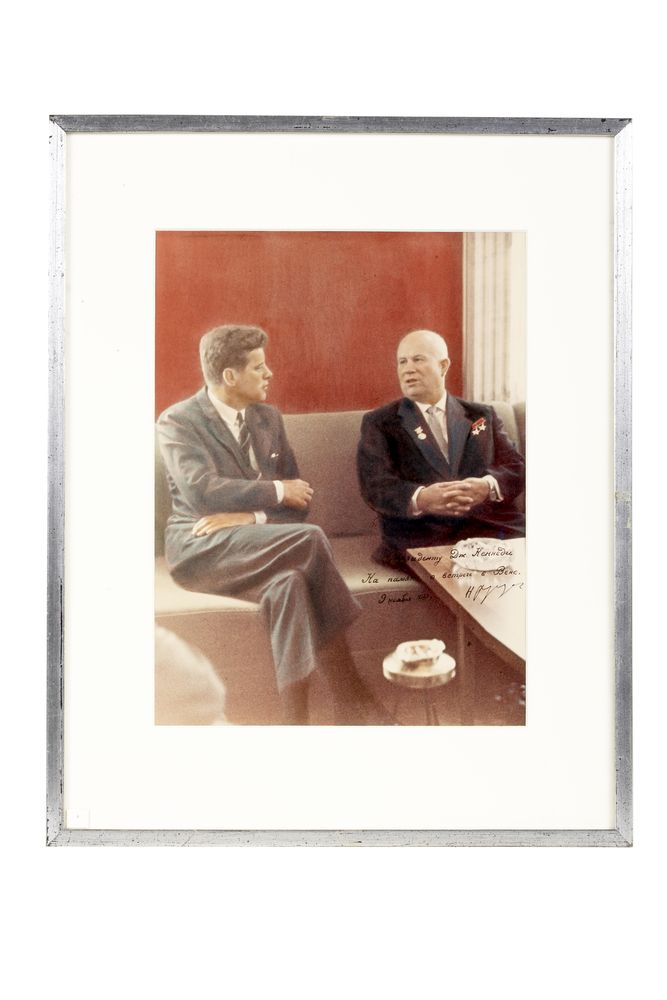
Kennedy and Khrushchev, gifted by Nikita Khrushchev to JFK
Photograph of President John F. Kennedy and Premier Nikita Khrushchev, jfklibrary.org, https://www.jfklibrary.org/asset-viewer/archives/JFKSG/JFKSG-MO-1983-21/JFKSG-M O-1983-21
It was obvious to both sides that nuclear war would demolish both nations and ruin other innocent countries as well. It was clear there needed to be a truce with acceptable terms for each side. Eventually, Kennedy and Khrushchev agreed to a deal publicly where the USSR would withdraw the missiles as long as the U.S. pledged to never invade Cuba again. In a secret deal, the U.S. also agreed to remove their Russia-facing missiles from Turkey.
Our goal is not victory of might but the vindication of right - not peace at the expense of freedom, but both peace and freedom, here in this hemisphere and, we hope, around the world. God willing, that goal will be achieved.
~ John F. Kennedy, Cuban Missile Crisis Adress to the Nation.

Kennedy and Khrushchev, gifted by Nikita Khrushchev to JFK
Photograph of President John F. Kennedy and Premier Nikita Khrushchev, jfklibrary.org, https://www.jfklibrary.org/asset-viewer/archives/JFKSG/JFKSG-MO-1983-21/JFKSG-M O-1983-21
The resolution of the Cuban Missile Crisis overall brought positive changes to the world. First, relations and communications between the U.S. and Soviet Union improved, and the two sides created a communication hotline between the two nations. However, a more short term impact of the crisis was the removal of Khrushchev from power, due to Soviet hardliners who perceived him as soft. Overall, both sides realized how close they had come to nuclear war, and they took steps to turn it around. The Cuban Missile Crisis helped lead to the Nuclear Test Ban Treaty, and overall contributed to the thawing of the Cold War.